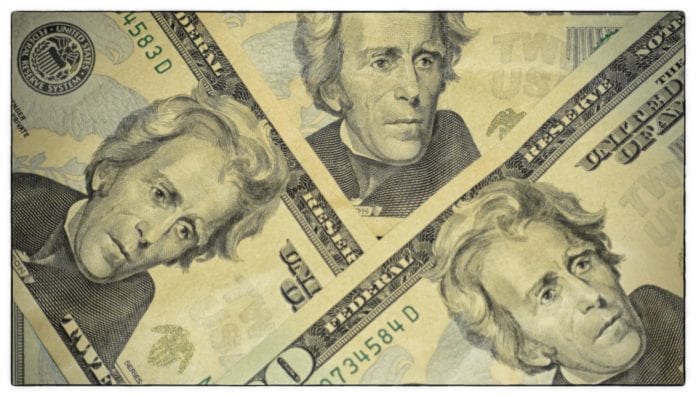Here are some questions and answers about how the unprecedented $2.2 trillion economic rescue package signed into law Friday may help you:
Who is getting a check?
Everyone earning up to $75,000 in adjusted gross income — the income on your tax return — and who has a Social Security number will receive a $1,200 payment. The payment steadily declines for those who make more, and phases out for those who earn more than $99,000. For married couples, both adults receive $1,200, with the phaseout starting at $150,000 of income and falling to zero for couples who earn $198,000 or more. Each child will also get $500. For heads of household with one child, the benefit starts to decline at $112,500 and falls to zero at $146,500.
What do I have to do to get one?
For most people, nothing. The U.S. Treasury will direct deposit the money in your bank if they have that information from this year’s tax return or last year’s. For everyone else, they will mail a check. If you didn’t file a tax return for either 2018 or 2019, your check could be delayed. The government can use your Social Security benefit statement as well.
When will I get the payment?
Treasury Secretary Steven Mnuchin has said repeatedly that it should arrive in three weeks. Even if it arrives electronically, you should receive a written notice within 15 days after the payment that specifies how much you received and how it was delivered.
Is there help in the bill for the unemployed?
The bill adds $600 a week, for a period of four months, to standard unemployment benefits, which vary by state. The measure adds 13 weeks of coverage for people who have exhausted their existing jobless benefits. It also provides funding for states to let people collect their payments immediately, eliminating a one-week waiting period.
What if I only work part-time?
Some states do provide partial unemployment for people who work part time or whose hours have been reduced. And the emergency legislation provides incentives for states to set up “short time compensation” programs, which provide benefits to offset lost pay through reduction of work hours. Those programs are intended to provide companies an alternative to cutting jobs.
For example, the rescue bill would pay half the cost of providing benefits to those with reduced hours through the end of the year to states that launch such programs.
I am a gig worker, can I qualify?
Yes. The bill would create a temporary Pandemic Unemployment Assistance program to cover many workers not traditionally eligible for unemployment benefits, including self-employed people, contractors and those with limited work history. That program will last through December 31.
How much might I receive?
The total amount of unemployment insurance depends on what each state provides. Economists at Goldman Sachs calculate that for the average worker who earns about $1,200 a week, the enhanced weekly benefit should fully replace their lost wages. For lower-income employees of restaurants and hospitals, it should provide more than their usual salaries.
Has the government done anything for housing payments?
Yes. Government-backed mortgage buyers Fannie Mae and Freddie Mac have said that they will suspend all foreclosure sales and evictions of borrowers in single-family homes owned by their companies. They have also expanded their forbearance program, offering more borrowers relief for up to one year and suspending late charges and penalties. Together they guarantee about half of the U.S. home market.
Also, the federal government suspended foreclosures and evictions for mortgages insured by the Federal Housing Administration.
If you’re worried about missing a mortgage payment, contact your lender immediately. Numerous banks have said they are willing to work with distressed borrowers, including potentially suspending or reducing mortgage payments for a stretch.
What about renters?
Renters’ fates depend on where they live and who they rent from. Reach out to your landlord or property management company to ask for leniency.
Several cities have halted evictions due to the coronavirus. Fannie and Freddie are also offering owners of multifamily properties forbearance relief on their mortgages, on condition they suspend all evictions of renters unable to pay because of the virus.
What about student loans?
Student loan borrowers have a few options.
If you have a federal student loan, you can apply for a deferment or a forbearance at any time. Both of these postpone payments temporarily but interest still accrues on some loans with deferment and all with forbearance.
Now, federal loan borrowers can seek an emergency administrative forbearance, which would allow them to postpone payments for up to 60 days. Borrowers must contact a servicer to apply. The postponement is automatically applied for borrowers more than 31 days late on payments. Interest will not be added to the balance at the end of the forbearance period.
Switching to an income-driven repayment plan may be a good option for some borrowers, said Mark Kantrowitz, a student loan expert and publisher of website Savingforcollege.com. If you’ve been laid off or your hours were greatly reduced, the payment can be lowered to zero.
The federal government also lowered the interest rate on all federally held student loans to 0% for an indefinite period. However, that will not lower the size of the monthly payment; instead it will apply the payment entirely to the principle of the loan.
If you have private student loans, contact your servicer for their options.
(Reported for the Associated Press by Christopher Rugaber, Alexandra Olson and Sarah Skidmore Sell.)



